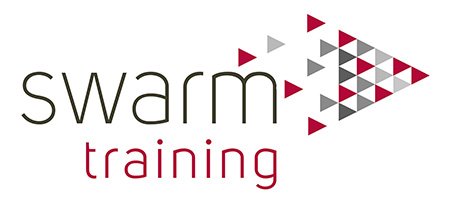
Market Research Executive Apprenticeship
Level: 4 / Duration: 16-18 mths
We have been working with the Market Research Society since this apprenticeship was commissioned to prepare the required learning materials and to support its launch into the industry. We have continued to work closely with them to deliver ongoing improvement in training and make it as relevant as possible to employers and equip Market Research apprentices to become well rounded, knowledgeable and quality professionals.
How it works - The Learning phase
| Apprentices will meet with a tutor monthly to learn the course curriculum. The majority of learning is conducted online allowing learners to meet other apprentices and network |
| Apprentices must take 6 hours a week out of their normal contracted hours to engage in study and learning time |
| Learners must be in the learning stage for a minimum of 12 months and a day. During their time on the learning programme, they will learn key Knowledge, Skills and Behaviours, and build a portfolio of evidence as they go to prove that they have attained the level of capability required |
The Assessment phase
| Once their portfolio is complete, the learner will go to a stage called “Gateway“ which is the start of their assessment period (for this course, that assessment period lasts for 3-4 months) |
| During the first 3 months of the assessment period, the apprentice must carry out a real project at work to apply their learned Knowledge, Skills and Behaviours, then produce and submit a project report and presentation |
| Following their submission and around 2-4 weeks later, the apprentice will meet with an external assessor (usually online), deliver their presentation and discuss their project and portfolio of evidence. |
The training will enable your apprentice to:
Understand research project goals and be able to create a research project design to deliver required insight.
Prepare proposals which recommend suitable research methodologies and analysis to achieve business objectives.
Understand Project Management techniques of time management, scheduling, costs and budgeting
Support research teams in research life cycle including building and maintaining relationships with different service providers
Organise and prepare research materials and data collection documents such as key documents, notes, stimulus materials, questionnaires, discussion topic guides, interviewer briefing notes and incentives
Collate, summarise and evaluate previous research reports, to assess commonalities and new areas of interest
Adhere to appropriate legal and ethical requirements including the Market Research Society Code of Conduct
Capture, check and prepare primary research data using digital and non-digital methods
Undertake desk research into secondary sources of data relevant to research objectives
Check, monitor and screen processes used to recruit and/or maintain databases of participants for use in future research projects
Understand how to improve the design and undertaking of a research project in order to deliver ongoing improvements to processes, customer service and insight
Structure, segment and analyse participant data into appropriate formats in readiness for reporting to clients.
Validate data using accepted research data quality methods to ensure accuracy, representativeness and suitability using statistical and/or social science validation checks.
Prepare research reports and consider the best way to present research outputs to clients so as to detail the findings of the research activity undertaken and give recommendations for future client actions.
Knowledge, Skills and Behaviours
We can provide you with a full list of the Knowledge, Skills and Behaviours which your apprentice will be taught and assessed on but as an overview, your apprentice will learn the following:
-
Understanding Market Research in Business
Opportunities in Market Research
Market Research Landscape
Types of Market Research
Legal and Ethical Requirements
-
When to use quantitative & qualitative research
Sampling in market research
Data collection techniques
Data processing and storage
Analysis and visualisation
Communities and software
-
Designing a study
Critical thinking
Secondary research and analysing past projects
-
The Stages of a Market Research Project
Design of a Project
Project Execution and Management
Client relationship management
Answering Business Questions with data
-
Foundations of Analysis
Measures of central tendency and spread
Inferential Analysis
Dealing with precision and bias
Quantitative versus Qualitative analysis
Analysing Secondary data
Interpreting research data to answer questions
Preparing and presenting research findings
OR
complete the form below
